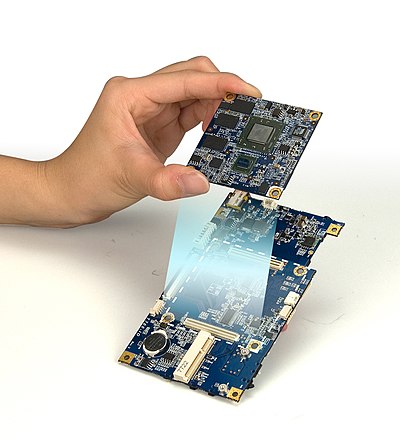Technology acceptance models
| Change with digital technologies in education (#OERuCDTE) | |
|---|---|
| Theories of change: Personal context | Introduction and objectives | The innovation | Concerns-based models | Technology acceptance models |
| “ | Technology is so much fun but we can drown in our technology. The fog of information can drive out knowledge. | ” |
| —Daniel J. Boorstin[1] | ||
The technology acceptance models (TAM) originated from computer science and information systems theory in an attempt to answer questions about the technology adoption.
The original technology acceptance model and subsequent derivatives are based on the interplay between two main constructs:
- Perceived usefulness (PU) - referring to the degree to which a person believes that using the new technology will enhance their performance.
- Perceived ease-of-use (PEOU) - referring to the degree which a person believes that using a particular technology will be free from effort and easy to use.
In subsequent derivatives and refinements to the original TAM model, the perceived usefulness and usage intentions were expanded to consider social influence and cognitive instrumental processes.
As with all models, which are simplifications of reality, TAM has been criticised for its limited focus on the individual 'user' and limited integration of social processes, group dynamics and the wider ecosystem.
It is also reasonable to question whether perceived usefulness will contribute to improved efficiency in contexts where lack of experience with the technology does not provide useful indicators into the contribution of a new technology to future efficacy. This relates to the challenges of not knowing what you do not know. Nonetheless, TAM does offer useful insights for educators contemplating change with digital technology. Moreover, it is beneficial for educators to widen their scope to include theoretical insights from disciplines outside of the traditional disciplines of education.
We have identified a few resources which you can read to expand your knowledge about technology acceptance models:
|
